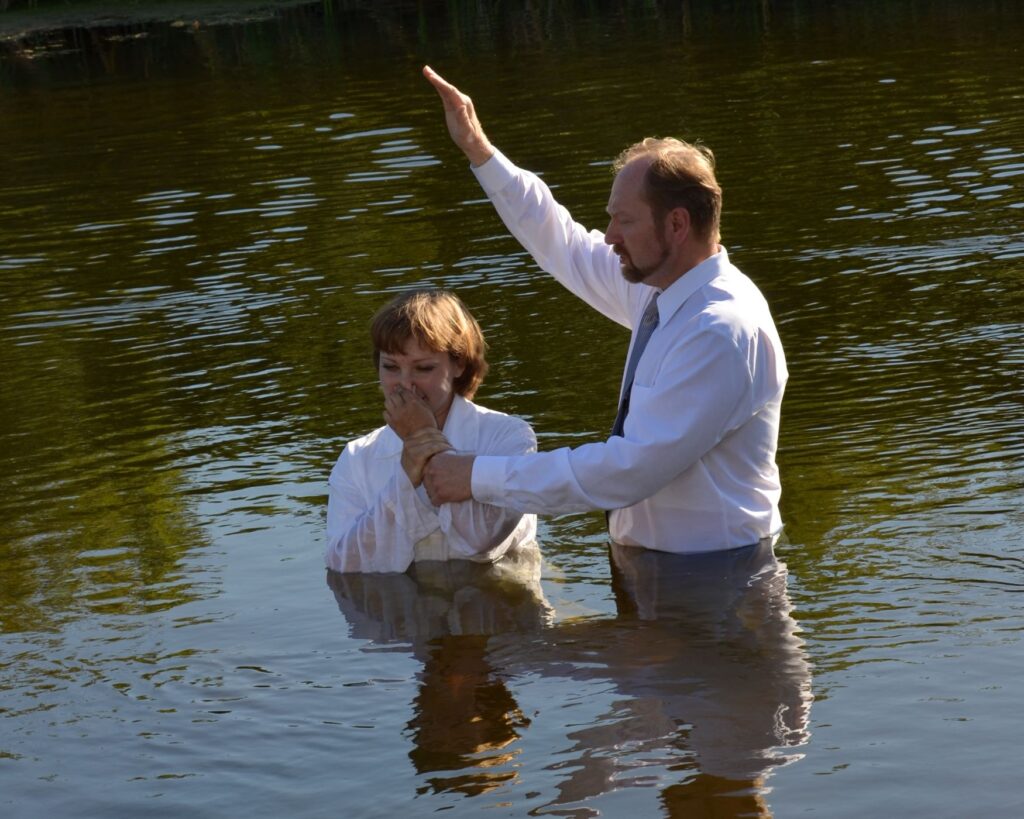Welcome to “A New Start with Christ: The Ultimate Beginner’s Guide to Being a Christian.” If you’re exploring what it means to follow Jesus or are curious about the Christian faith, you’ve come to the right place. This journey you’re considering is one of transformation, hope, and profound love—a path walked by millions across the globe, yet unique to every individual.
At the heart of Christianity is Jesus Christ, a figure who has captivated and transformed countless lives throughout history. But who is He, and why does He matter? These questions are where our journey begins, exploring the life, teachings, and unparalleled impact of Jesus, as revealed to us through the Bible.

This guide is designed with you in mind: someone curious and seeking, maybe standing at the crossroads of faith, ready to explore what lies beyond. Whether you have countless questions or simply a quiet stirring in your heart, we’re here to walk through this exploration together. Our aim is to make this journey as clear and accessible as possible, relying on the Bible—God’s Word—to light the way.
In the pages of the Bible, we find more than just history; we discover a message of grace, redemption, and love that transcends time. It’s a message that speaks directly to the hearts of all who seek to understand their place in this world and their relationship with their Creator.
Browse the Best Christian Gifts For Women!
As we embark on this journey together, remember: no question is too small, no doubt too big. The Christian faith, at its core, invites inquiry and reflection, leading us closer to the truth and heart of God. So, let’s begin this adventure with open hearts and minds, ready to discover the transformative power of a new start with Christ. As we want to do our best to lead you correctly, it all comes down to your desire to know more about Jesus. You can make plans with Jesus by starting with a good bible to read, because there is no word more true than the word from the bible, which is God’s word. You cannot do this without the bible. There are many version of the bible that have become popular, but verses have been left out and some of them altered to almost not even mean the same thing, it is important you check out this guide on choosing the correct bible!

Who Is Jesus?
At the foundation of Christianity is Jesus Christ, a figure whose life and teachings have profoundly influenced the world. Understanding the Christian faith begins with understanding the person at its center.
The Son of God
Jesus declared, “I am the way, the truth, and the life. No one comes to the Father except through Me” (John 14:6). This statement highlights Jesus’ unique identity as the Son of God, serving as the bridge between humanity and the divine.
The Savior of Humanity
“For God so loved the world that He gave His only begotten Son, that whoever believes in Him should not perish but have everlasting life” (John 3:16-17). These verses reveal Jesus’ mission: to bring salvation to all who believe in Him, underscoring His role as the Savior.

Jesus’ Life and Teachings
Jesus’ time on Earth was marked by teachings on love, forgiveness, and compassion, challenging norms and inviting a deeper understanding of living in relationship with God. He summarized the law with two commandments centered on love: to love God with all one’s heart, soul, and mind, and to love one’s neighbor as oneself (Matthew 22:37-39).

The Crucifixion and Resurrection
The core of Christian faith is Jesus’ death on the cross and subsequent resurrection, acts that signify God’s love and offer redemption. “But God demonstrates His own love toward us, in that while we were still sinners, Christ died for us” (Romans 5:8). This sacrifice is central to the hope and salvation offered to believers.
Understanding Jesus as the Son of God, the Savior, a profound teacher, and the embodiment of God’s love is essential for exploring what it means to follow Him. His life, teachings, and sacrifice offer a pathway to experiencing God’s grace and love.

The Gift of Salvation
Central to the Christian message is the concept of salvation—a gift of grace from God, made possible through faith in Jesus Christ. Understanding salvation is crucial for anyone beginning their journey with Christ.
Salvation Through Faith
Salvation is not something that can be earned through deeds but is a gift from God to those who believe in Jesus. Ephesians 2:8-9 clarifies this beautifully: “For by grace you have been saved through faith, and that not of yourselves; it is the gift of God, not of works, lest anyone should boast.” This passage underscores that salvation is a result of God’s grace, accessible through faith in Jesus.

The Role of Jesus in Salvation
Jesus’ sacrifice on the cross is the cornerstone of Christian salvation. By paying the penalty for sin through His death, Jesus opened the way for humanity to be reconciled with God. Romans 10:9 offers a clear step towards this gift: “If you confess with your mouth the Lord Jesus and believe in your heart that God has raised Him from the dead, you will be saved.” This confession and belief in Jesus’ resurrection are key to receiving salvation.
The Promise of Eternal Life
Salvation in Christ is not only about the forgiveness of sins but also the promise of eternal life with God. John 3:16, one of the most quoted verses in the Bible, promises, “For God so loved the world that He gave His only begotten Son, that whoever believes in Him should not perish but have everlasting life.” This eternal life is a profound aspect of the salvation offered to believers.
Responding to the Gift of Salvation
Accepting the gift of salvation involves acknowledging one’s need for Jesus, believing in His death and resurrection, and confessing Him as Lord. It’s a personal decision that marks the beginning of a new life in Christ, characterized by a relationship with God, transformation, and growth in faith.
Salvation is the foundation upon which the Christian life is built. It marks the beginning of a transformative journey—a journey of healing, discovery, and deepening relationship with God. For those exploring what it means to be a Christian, understanding and receiving this gift of salvation is the first step toward a fulfilling and purposeful life in Christ.
Ever thought of using digital graphics to make your own Christian themed or motivation t shirts and more? This website has the best Christian Graphics!

Exploring God’s Message: Navigating the Bible’s Wisdom
The journey into Christianity is deeply enriched by engaging with the Bible, God’s profound message to humanity. This sacred text, brimming with historical narratives, teachings, and divine wisdom, acts as a compass for believers, guiding them through life’s complexities with hope and clarity.
The Transformative Power of Scripture
The Bible’s significance in Christian life cannot be overstated. It is through these pages that we come to understand the nature of God, the path to salvation through Jesus Christ, and the principles for living a life that honors Him. 2 Timothy 3:16-17 illuminates this truth: “All Scripture is given by inspiration of God, and is profitable for doctrine, for reproof, for correction, for instruction in righteousness, that the man of God may be complete, thoroughly equipped for every good work.” Scripture is not merely informative; it is transformative, equipping believers to navigate life with wisdom and purpose.
Starting Your Biblical Journey
For newcomers to the faith, the vastness of the Bible might seem daunting at first glance. Its two main sections, the Old Testament and the New Testament, encompass a wide range of literary genres and cover thousands of years of history, divine revelations, and moral teachings. Yet, at its core, the Bible tells a cohesive story of God’s relentless love for humanity and His plan for redemption.
Choosing an appropriate Bible translation is a crucial first step in making the text accessible and understandable. The variety of translations available today—from the traditional King James Version (KJV) to the more contemporary New International Version (NIV) and New King James Version (NKJV)—means there’s an option that resonates with everyone’s reading style and comprehension level. Understanding the nuances and strengths of each translation can significantly enhance your study of God’s Word. For guidance on selecting the best version for your spiritual journey, consider exploring resources like The Importance of Choosing the Right Bible Translation: KJV vs. NKJV vs. NIV, which offer insightful comparisons and recommendations.
Engaging with Scripture
As you begin to explore the Bible, approach it with an open heart and mind, ready to encounter God’s voice. Prayer is a powerful tool for seeking understanding and guidance as you read. Remember, the goal of Bible study is not just to accumulate knowledge but to foster a deeper relationship with God.
The Bible stands as a beacon of hope, wisdom, and truth for Christians worldwide. By delving into its teachings, believers find not only the foundation of their faith but also a constant source of strength and direction for their lives. Starting this journey of discovery brings the transformative power of God’s Word into the heart, guiding each believer toward a fulfilling walk with Christ.\

Baptism: you must be saved & baptized
Baptism stands as a pivotal milestone in the Christian journey, symbolizing a believer’s faith in Jesus Christ and their decision to follow Him. This sacred act is both a public declaration of faith and a deeply personal commitment to a life transformed by Christ.
Understanding Baptism in the Christian Faith
Baptism is rooted in the teachings of Jesus and practiced by His followers as an expression of belief and obedience. It represents the washing away of the old life of sin and the emergence into a new life in Christ. The significance of baptism is beautifully captured in Romans 6:3-4, where Paul writes, “Or do you not know that as many of us as were baptized into Christ Jesus were baptized into His death? Therefore we are buried with Him through baptism into death, that just as Christ was raised from the dead by the glory of the Father, even so we also should walk in newness of life.”
The Steps Leading to Baptism
The path to baptism is marked by hearing the Gospel, believing in Jesus Christ, repenting of one’s sins, and confessing faith in Jesus as Lord. This journey is a transformative process that prepares the heart and soul for the act of baptism, where one is immersed in water to rise again in newness of life. For a deeper understanding of this journey, resources such as “The Path to Salvation: Hearing, Believing, Repenting, Confessing, and Being Baptized” provide valuable insights into each step.
The Role of Baptism in Salvation
Questions often arise about the role of baptism in salvation, especially in light of the thief on the cross who was promised paradise without baptism. “The Truth Behind the Thief on the Cross and Baptism” explores this topic, offering a nuanced perspective on the grace of God and the place of baptism in the Christian faith.
The Transformative Power of Baptism
Baptism is more than a ritual; it’s an encounter with the transformative power of God’s grace. “The Transformative Power of Baptism: A Biblical Exploration” delves into how baptism symbolizes burial and resurrection with Christ, a fundamental change that impacts a believer’s identity and way of life.
Is Baptism Necessary?
While the necessity of baptism is a topic of discussion among Christians, it’s clear from Scripture that baptism is a commanded act of faith and obedience. “Does the Bible Say Baptism is Necessary?” examines biblical teachings to clarify this important aspect of Christian doctrine.
Baptism is a profound declaration of faith and a step of obedience in the Christian journey, embodying the death of the old self and the birth of a new life in Christ. As believers emerge from the waters of baptism, they do so with a renewed commitment to living according to God’s will, empowered by the Holy Spirit and embraced by the community of faith.

Going To Church: The Importance of Sunday Worship
As you embark on your journey with Christ, one of the foundational practices in Christian life is the tradition of Sunday worship. This tradition is deeply rooted in the biblical narrative, reflecting the early church’s pattern of gathering on the first day of the week to commemorate Jesus’ resurrection and to fellowship together. Understanding this practice can enhance your connection to the Christian faith and its rich history.
Sunday Worship in Scripture
The New Testament provides several references that underscore the significance of Sunday, the first day of the week, as a special time for believers to gather:
- The Gospels of Matthew 28:1, Mark 16:1-2, Luke 24:1, and John 20:1 narrate the discovery of the empty tomb on Sunday, marking this day as the momentous occasion of Jesus’ resurrection.
- John 20:19 describes Jesus’ post-resurrection appearance to His disciples on a Sunday, highlighting this day’s importance as a time of revelation and fellowship.
- In Acts 20:7, the early Christians are depicted gathering on the first day of the week to break bread and listen to Paul’s teachings, indicating a precedent for communal worship and instruction on Sundays.
- 1 Corinthians 16:1-2 mentions the practice of setting aside offerings on the first day of the week, further suggesting the early church’s regular gatherings on Sundays.
For those seeking a deeper understanding of why Sunday has been historically significant for Christian worship and how this tradition aligns with biblical teachings, resources such as The Path to Salvation: Hearing, Believing, Repenting, Confessing, and Being Baptized, The Truth Behind the Thief on the Cross and Baptism, The Transformative Power of Baptism: A Biblical Exploration, and Does the Bible Say Baptism is Necessary? can provide valuable insights.
The Modern Significance of Sunday Worship
Sunday worship connects believers not only to the foundational event of Christianity—the resurrection of Christ—but also to a tradition of fellowship that spans centuries. It’s a time for believers to come together in prayer, worship, and learning, strengthening their faith and communal bonds.
As you consider incorporating Sunday worship into your spiritual routine, remember that it’s more than a mere obligation; it’s an opportunity to celebrate the resurrection of Jesus, to grow in faith alongside fellow believers, and to partake in the transformative power of communal worship.
In embracing the tradition of Sunday worship, you’re joining a continuum of faith that links present-day believers with the early followers of Jesus, all united in the celebration of Christ’s victory over death and the hope of eternal life.

Living Out Your Faith: Practical Steps for New Believers
After embracing the foundational aspects of Christianity—understanding who Jesus is, recognizing the gift of salvation, diving into the Bible, engaging in prayer, and participating in church life—the next step is to live out your faith in practical, everyday ways. This means allowing the principles and teachings of Jesus to shape your actions, decisions, and interactions with others.
Reflecting Jesus in Daily Life
Living out your faith is about embodying the love, grace, and compassion that Jesus demonstrated. It involves:
- Loving Others: Following the greatest commandments to love God with all your heart and to love your neighbor as yourself (Matthew 22:37-39). This love is active, extending kindness, support, and care to those around you, especially those in need.
- Forgiving Freely: Embracing forgiveness, as Jesus taught, not only receiving God’s forgiveness for ourselves but also extending forgiveness to others (Colossians 3:13). Forgiveness is a hallmark of Christian living, promoting peace and reconciliation.
- Serving Humbly: Looking for opportunities to serve within your community and beyond, following Jesus’ example of servant leadership (Mark 10:45). Service can take many forms, from volunteering at church to helping a neighbor in need.
Growing in Faith
Spiritual growth is a lifelong journey that involves:
- Continual Learning: Regularly engaging with the Bible and other Christian literature to deepen your understanding of God’s Word and its application to your life.
- Prayer: Maintaining an ongoing conversation with God, bringing your praises, requests, and questions before Him, and listening for His guidance.
- Fellowship: Staying connected with your church community for support, encouragement, and accountability. Being part of a community helps you grow in faith and provides opportunities to use your gifts to bless others.
Witnessing to Others
Part of living out your faith is sharing the hope and joy you’ve found in Jesus with others. Witnessing isn’t just about formal evangelism; it’s reflected in the way you live your life. Your actions, words, and attitudes can be a powerful testimony to the transformative power of Christ.
- Be Ready to Share: Always be prepared to share the reason for the hope that you have in Jesus with gentleness and respect (1 Peter 3:15). Your personal story of faith can be a compelling witness to others.
- Live Authentically: Strive to live in a way that reflects your Christian values and beliefs. An authentic life, marked by love, integrity, and compassion, can draw others to Christ more than words alone.
Living out your faith as a new believer is both a privilege and a responsibility. It’s a journey of becoming more like Jesus, growing in your relationship with God, and impacting the world around you with His love. Remember, this journey is not about perfection but progress, walking in grace and striving each day to reflect Christ in all you do.

Nurturing Your Spiritual Growth: Beyond the Basics
After laying the foundational stones of your faith—acceptance of Jesus, engagement with Scripture, active prayer life, and participation in church activities—fostering your spiritual growth becomes the next vital step in your Christian journey. This growth is not just about gaining more knowledge but about deepening your relationship with God and becoming more like Jesus in character and action.
Engaging with Scripture Deeply
While initial encounters with the Bible may focus on understanding its basic teachings and stories, deeper study involves exploring the contexts, themes, and nuances of biblical texts. Consider adopting a study method that resonates with you, whether it’s through commentaries, Bible study groups, or thematic studies, to gain a richer understanding of God’s Word and its application to your life.
- Meditation on Scripture: Psalm 1:2-3 highlights the blessing of delighting in and meditating on God’s law. This practice involves pondering the meaning and implications of Scripture, allowing it to shape your thoughts and actions.
Cultivating a Rich Prayer Life
Prayer is the lifeline of your relationship with God. Moving beyond basic requests, seek to cultivate a prayer life characterized by sincerity, vulnerability, and persistence. Embrace various forms of prayer—adoration, confession, thanksgiving, and supplication—to express the full range of your relationship with God.
- Consistency and Honesty in Prayer: Luke 18:1 teaches about the need to pray always and not lose heart. Approach God with honesty, sharing your doubts, fears, joys, and gratitude, knowing He values openness and a contrite heart.
Finding Your Place in the Body of Christ
The church is not just a place you go to, but a community you belong to. As you grow, seek ways to contribute your gifts and talents to the body of Christ. Whether through music, teaching, hospitality, or service, your involvement enriches the church and furthers its mission.
- Spiritual Gifts: Romans 12:4-8 discusses the variety of gifts within the church, each designed to serve others and glorify God. Explore your spiritual gifts and consider how you can use them to bless your church and community.
Witnessing Through Your Life
As your faith deepens, your life becomes a testament to God’s grace and transformation. Living out your beliefs authentically in every area of your life—work, relationships, and community involvement—serves as a powerful witness to those around you.
- Lifestyle Evangelism: 1 Peter 2:12 encourages believers to live such good lives among the pagans that, though they may accuse you of doing wrong, they will see your good deeds and glorify God. Your life’s integrity and love can draw others to Christ.
Embracing Lifelong Learning
Your spiritual journey is a lifelong adventure with God. Remain a humble learner, open to God’s continued work in your life. Engage with diverse Christian traditions and perspectives to enrich your understanding and practice of faith.
- Continual Growth: Philippians 1:6 assures us that “He who began a good work in you will carry it on to completion until the day of Christ Jesus.” Trust in God’s ongoing work in your life, knowing that spiritual growth is a process He is committed to fulfilling.
Nurturing your spiritual growth involves a commitment to deepening your relationship with God and living out your faith in increasingly mature and impactful ways. As you continue on this path, you’ll discover the joy and fulfillment that come from walking closely with God and contributing to His kingdom’s work on earth.

One Step at a Time
Embarking on the Christian path can indeed feel overwhelming, especially when confronted with the depth and breadth of practices, teachings, and spiritual disciplines that constitute a life lived in faith. For newcomers, the wealth of information and the call to transform one’s life in Christ can seem daunting. However, it’s essential to remember that every journey begins with a single step, and in the realm of faith, each small step is celebrated by a God who cherishes willingness and a sincere heart.
It’s Okay to Start Small
If you’re new to all of this, feeling uncertain or overwhelmed is perfectly normal. Christianity, at its core, is not about mastering a set of doctrines overnight or achieving perfection in your practices from day one. It’s about growing in relationship with God, learning to live in His grace, and gradually becoming more like Jesus. “Do not despise these small beginnings, for the Lord rejoices to see the work begin” (Zechariah 4:10, NLT). This verse reminds us that God delights in our first steps toward Him, no matter how tentative.
Taking the First Steps
Starting your Christian journey is better now than waiting for a “perfect” time that may never come. Begin with simple, manageable steps:
- Pray daily, even if it’s just a few words or thoughts shared with God.
- Read the Bible, starting with one of the Gospels to get to know Jesus and His teachings.
- Connect with a community of believers who can support and guide you.
- Reflect on your life and consider how the teachings of Jesus might apply to your daily decisions and relationships.
Remember, the goal is not to overwhelm yourself with obligations but to gradually incorporate these practices into your life, allowing them to shape you over time.
Lean on God’s Strength
As you take these steps, remember that you’re not walking alone. Philippians 4:13 reassures us, “I can do all things through Christ who strengthens me.” This journey is one of partnership with God, who provides the strength, wisdom, and grace we need to grow and persevere. When challenges arise or when you stumble—as all believers do—know that God’s love and forgiveness are constant.
Celebrate Each Victory
Every step forward, no matter how small, is a victory in your spiritual journey. Celebrate these moments, whether it’s understanding a Bible passage more deeply, finding joy in prayer, or experiencing the warmth of community. These milestones, big and small, mark your growth in faith and your deepening relationship with God.
Yes, beginning your walk with Christ can be a lot to take in, but the beauty of faith is discovered in the journey, not just the destination. Start where you are, use what you have, and do what you can. Your best effort, offered in sincerity, is exactly what God asks of you. As you move forward, step by step, you’ll find that the path of faith is not about achieving perfection but about growing in love, grace, and knowledge of God. Welcome to this incredible journey of becoming a Christian! Remember, even if you have not loved Jesus, he loves you and welcomes you with open arms to follow him and love him, because he loves you more than anyone can, has or will!

As an Amazon Associate we earn from qualifying purchases through some links in our articles.



